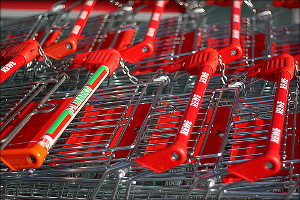
Conservatives may have opposed the repeal of Don’t Ask Don’t Tell and they may vehemently object to any notion of gay marriage, but CPAC (the Conservative Political Action Conference) is currently under attack for being too accommodating to homosexuals. In other news, pigs are flying and bears are now exclusively using indoor plumbing.
GOProud is a gay conservative advocacy group, which is a little like being a group of turkeys dedicated to traditional Thanksgiving celebrations. Still, for the second year in a row they are co-sponsors of the annual CPAC event. In recognition of the cognitive dissonance it takes to belong to GOProud, several other groups have announced they will be boycotting the event.
The American Principles Project announced last month it wouldn’t attend CPAC for fear of catching the gay. Specifically, Executive Director Andy Blom announced. “By allowing GOProud to be a prominent part of CPAC 2011, Mr, Keane and the American Conservative Union have demonstrated a dangerous disregard for the importance of faith, marriage, and the family in our conservative values.”
Piling on, but in a strictly manly platonic non-gay way, the Family Research Council and Concerned Women for America have now also refused to attend. CWA President Penny Nance said, “CWA has decided not to participate in part because of GOProud.” Apparently she pines for the good old days before women had to compete with gays to be the oppressed group.
The organizations American Values, Capital Research Center, the Center for Military Readiness, Liberty Counsel, and the National Organization for Marriage are also declining participation this year.
Given the level of defection from key constituencies, the fact that CPAC has stuck to their guns and retained GOProud’s prominent role in the conference is unexpected and downright refreshing. It will surprise no one if the other shoe falls sometime prior to the February event and GOProud gets sent to the back of the bus. But for the time being, I’m typing words I never thought would flow off my fingers:
Well done CPAC.

